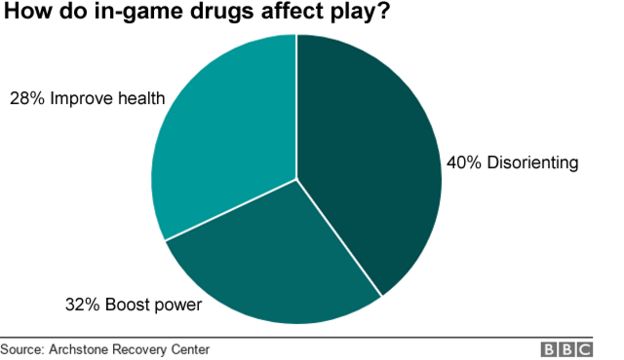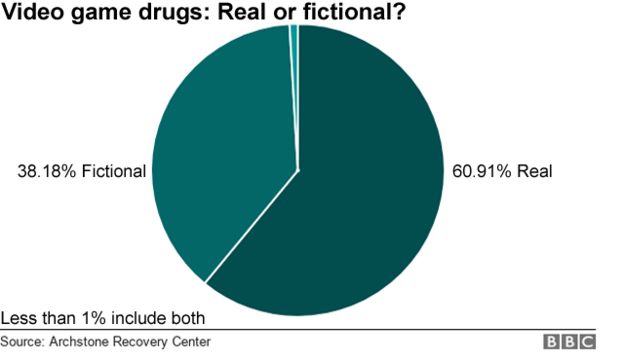A study of real and made-up drugs in best-selling video games has highlighted how harmful narcotics often give unlikely strength and health boosts to characters. The report also details how players are often prompted to create drug cocktails to gain new or enhanced abilities. The work was done by Archstone, an addiction awareness organisation. It said parents needed to be cautious about what their children are playing and learning.

The Entertainment Software Rating Board (ESRB), which assigns age and content ratings to games in the US, says it is happy with its drugs-related guidance. "The ESRB's robust rating submission process ensures accurate, detailed and reliable rating information that parents are aware of, regularly use and trust to help decide which games and apps are appropriate for their children and family," said a spokeswoman. Ever since Mario powered himself up with mushrooms, allusions to drug use have become commonplace, but as games - and the people who play them - have matured, so has the depiction of mind- and body-altering substances.
Multiple Stimulant
In other examples, players were often able to combine drugs to produce beneficial effects. The report notes: "The most common combination of drugs? Multiple stimulants. Nearly one-quarter of the games we looked at included more than one stimulant. "Used to stay awake, gain energy, and get high, stimulants are extremely addictive. "Common examples include cocaine, crack cocaine, and meth."

Rating System
The ESRB told the BBC it took time to consider the context of taking substances when determining the guidance it gives parents buying games for their children. "The ESRB rating system weighs factors that are unique to an interactive medium, such as the reward system, frequency, and the degree of player control among others," it said. "Therefore, the mere presence of something like a health pack in a game may not result in a restrictive rating being assigned. "However, given the context in which drugs appear in a game, the ESRB may assign a restrictive age rating, along with either the drug reference or use-of-drugs content descriptor."
Go to www.bbc.com for more info





0 comments: